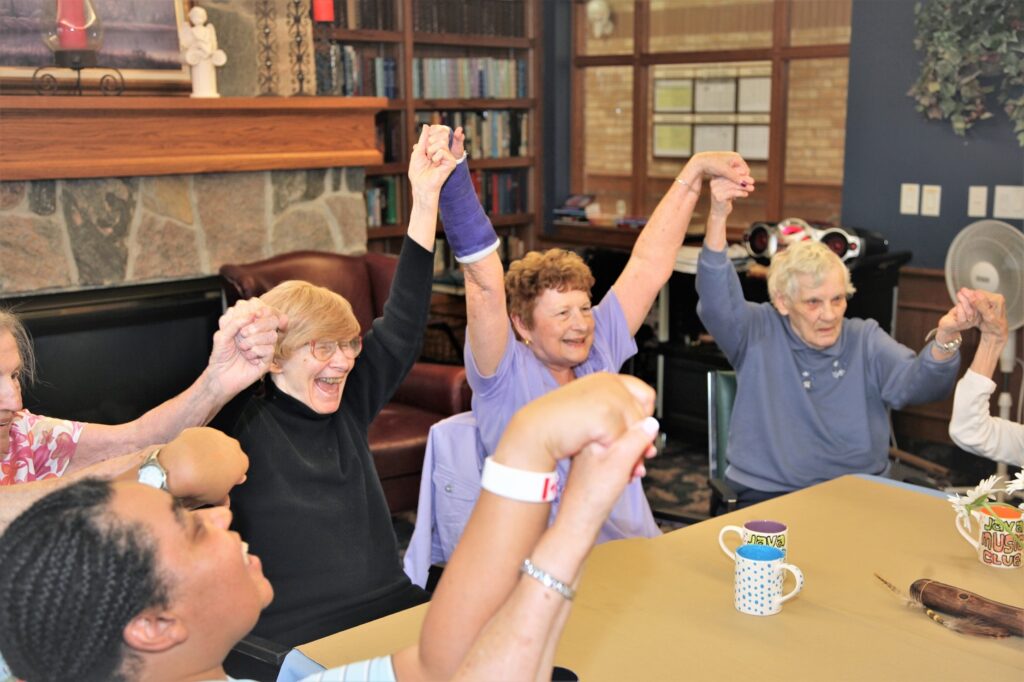Home › What We Do › Older Adult Mental Health and Well-being
A Growing Population, An Overlooked Reality
Older Adults
Older adults are living longer, but not always better. In their stories, we find both urgency and opportunity—to listen, to learn, and to act.
What is the issue?
People 65 and older make up about 20 per cent of Canada’s population (and growing). But the data on risk level or how many are experiencing mental health concerns and conditions is lacking. What we do know is that older adults face health, support, and environmental barriers that limit their ability to achieve the best mental health and care outcomes.
According to the World Health Organization, the mental health of older adults is often overlooked due to health scenarios that complicate prevention, detection, diagnosis, treatment, and management.
For those in equity-deserving groups, additional barriers further marginalize them within their social and care environments. Given Canada’s increasing diversity, it’s essential to recognize, understand, and address how stigma and discrimination are impacting their experience.
Fast facts
- As many as 1 in 3 older adults living on their own say they have a need for mental health care.
- 12% of those 65 and older have reported feeling social isolated.
- Delays in diagnosis increase as people age.
- 22% of older adults in one study screened positive for depression.
- 5% of older adults access health services for mood or anxiety disorders.
Related Initiatives
Improving Access
E-mental health with stepped care
Engaging Caregivers
Informing the Future
Mental Health Indicators for Canada
Recovery
What are we doing?
Transforming health-care, social care and community landscapes to optimize the mental health of older adults in Canada
We conducted a study to take the pulse of older adults, caregivers, health-care providers, and other key partners on the mental health of older adults in Canada. Read about our findings here.
Contributed to the UN Decade of Healt hy Ageing
hy Ageing
Read our explainer to learn about evidence-based strategies that bring the mental health and wellness focus to the UN Decade of Healthy Ageing’s four action areas. In which we show how improvements can be made for older adults in the Canadian context.

Guidelines and tools to better support older adult mental health
Guidelines for Comprehensive Mental Health Services for Older Adults in Canada (Guidelines) is designed to help policy makers and service providers plan, develop, and implement a mental health service system that better responds to the aging population.

Mental health and well-being are as important in older age as in other times of life. That is one reason the Mental Health Commission of Canada (MHCC) created Guidelines for Comprehensive Mental Health Services for Older Adults in Canada. The Guidelines provide best advice for those who plan, develop, and deliver mental health care (and related) services to meet the distinct needs of older adults.

A resource to support the implementation of the Guidelines

A checklist designed to help individuals and organizations put the Guideline’s principles and values into action.

A resource discussing how the Guidelines can be leveraged in a COVID-19 context
Taking care of health-care workers

Learn why protecting and promoting the mental health of health-care workers is crucial to sustaining our system of care.

A brief that offers policy change considerations to better support long-term care workers’ psychological well-being.
Mental Health First Aid
A course to increase the capacity of older adults and their
families (informal caregivers), friends, care-setting staff, and communities to promote mental health
Mental Health Promotion
Public Health Agency of Canada
A national non-profit association that shares the science of wellbeing
Canadian Mental Health Association – Ontario